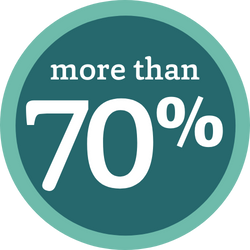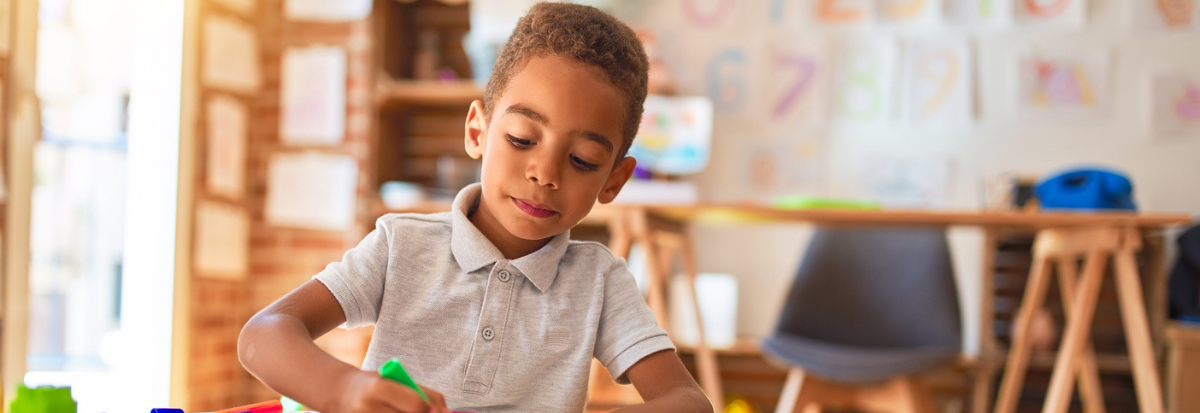The transition to kindergarten is a critical window of change for young children. It represents one of the earliest transitions U.S. children experience and for many children, this marks the beginning of formal schooling. Success in kindergarten sets children up for long-term academic achievement and development of social skills.
This kindergarten transition can often be challenging for children as they adjust to a new setting, with new people, new expectations, and often new academic demands. A recent study from Crane scientists found that at least 70% of children experienced at least one challenge during the transition to school; meeting academic demands and being organized were the most common challenges.
During the COVID-19 pandemic both pre-K and kindergarten enrollment numbers were down nationwide. Data on kindergarten readiness also show that in many instances, children are not as prepared for formal school as they were pre-pandemic.

OF CHILDREN EXPERIENCE CHALLENGES DURING THEIR TRANSITION TO KINDERGARTEN
Crane Center’s work on this topic
Our faculty and staff scientists have a breadth of expertise on kindergarten transition. Several research projects, white papers, research briefs, and events have focused on this topic.
Schoenbaum Center’s research-based resources
Experts at our Schoenbaum Family Center provide actionable insight and tips for families and educators about the kindergarten transition.
Kindergarten Readiness and Transition Webinar
(Parent Event)
Principal Anneliese Johnson and vice principal Samantha Peterson discuss key topics on getting ready for kindergarten including age eligibility, kindergarten readiness, common screenings, enrollment process, and supporting children at home.
Kindergarten Transitions: Examples from the A. Sophie Rogers School for Early Learning
(Practitioner Brief)
To make the kindergarten transition easier, our partner school, the A. Sophie Rogers School for Early Learning (ASR), works hard to support kindergarten-bound children and families in myriad ways.

